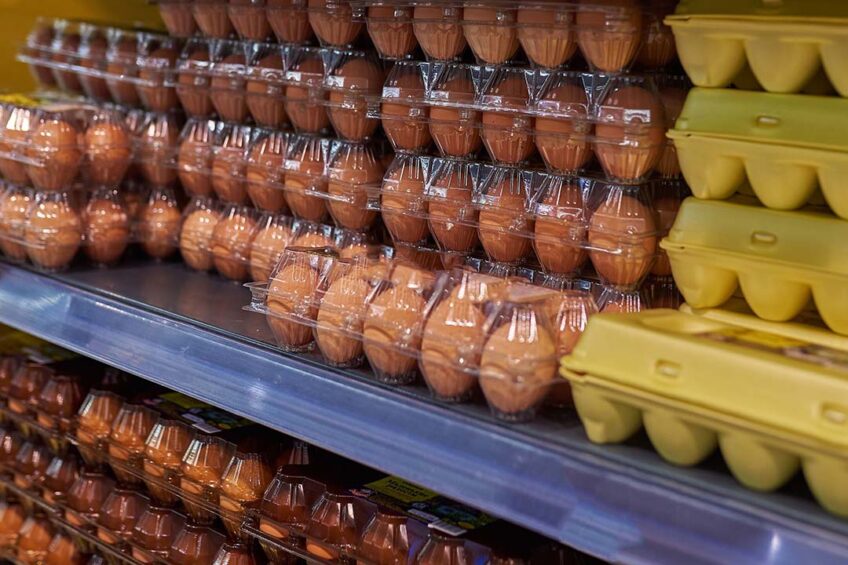Perfect storm on Russia’s egg market, authorities to step in

The Russian government is taking urgent measures to stabilise the situation in the local egg market where prices have soared more than 40% this year. Egg farmers claim that the industry is in “a perfect storm”.
Russian egg imports will be exempt from the import duty for the first 6 months of 2024, the economy development ministry has decided. Authorities expect that imports from ‘friendly’ countries could help return the balance to the market.
The Russian government has also kicked off an antimonopoly investigation against 4 major egg manufacturers to find out whether their pricing policy in recent months was justified.
Egg prices have become a widely discussed topic in the country in the past several weeks. During a press conference on 14 December, Russian President Vladimir Putin apologised for the price hike on the egg market, attributing it to a “failure in the government work”. He added that demand exceeds supply on the market, and imports have not been opened in a timely manner.
Russia’s federal veterinary watchdog Rosselhoznadzor recently greenlighted egg imports from Turkey. This country, alongside Azerbaijan, is expected to help Russia to fill the gap in the egg market, the agricultural ministry commented.
“…egg farms have been silently suffering”
The price hike has happened due to a perfect storm in the Russian egg industry, Leonid Kkolod, an independent agricultural analyst, told the local press. Over the past 2 years, Russian egg farms have been silently suffering having to maintain operations with ‘negative profitability’, Vladimir Mkhitaryan, director of the Krasnodar-based poultry farm Novorosiisk, disclosed. The farm ended 2022 with a marginality level of -3.6%. During the first 9 months of 2023, it reached -17%. Some farms curtailed operation while others scaled down production, Mkhitaryan said.
Among the reasons that pushed the profitability into the red zone, tough import dependence is the first to blame. Mkhitaryan said that the most painful is the need to purchase vaccines and feed additives abroad now when imports from Western countries are largely restricted.
“Equipment at poultry farms is also predominately of the European origin. Even if you manage to source components, you will do it at exorbitant prices,” Mkhitaryan admitted.
The labour shortage is another pressing issue. Natalia Shumechkova, director of the Rostov-based Aksayskaya poultry farm, estimated that the farm lacks roughly 50% of personnel. She added that the company tries to lure workers from remote settlements with high wages and reimbursement of transport costs.
The Poultry World Newsletter
Sign up for our newsletter and receive all our need-to-know content three times a week.












